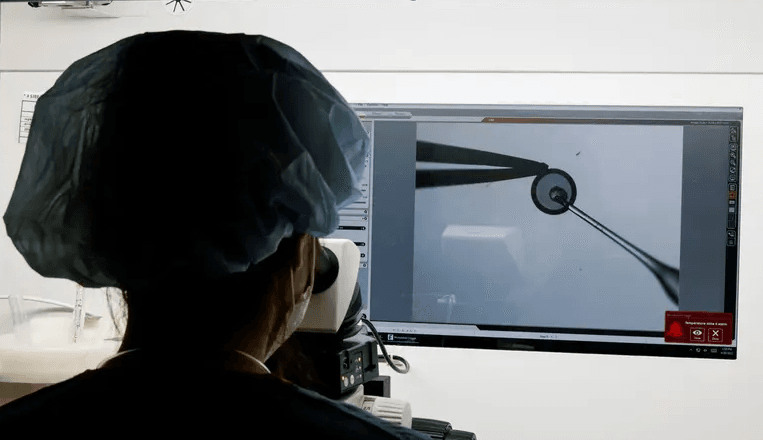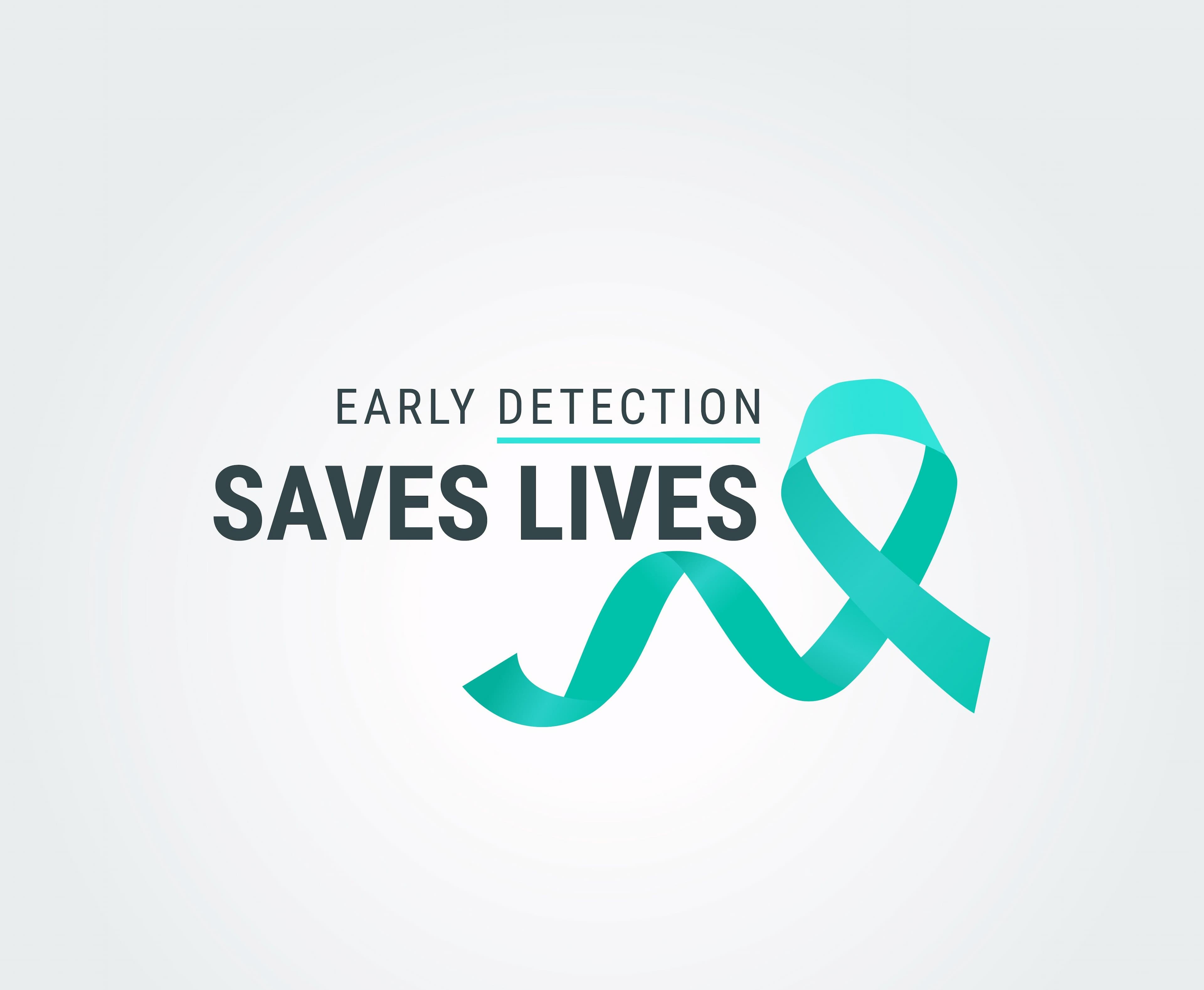
Surging number of women freezing eggs in UAE amid law reforms and changing attitudes
There is a “significant” rise in the number of women in the UAE who are choosing to freeze their eggs amid relaxed law changes, changing societal attitudes towards fertility treatment and more women delaying plans to start a family, experts have told Al Arabiya English.
The process, which sees a woman’s eggs collected, frozen and later thawed, has spiked in popularity as growing numbers of women look to “buy time.”
Fertility clinics and IVF specialists across the country have reported a surge in women seeking information about the procedure and opting to preserve their fertility.
Dr. Yasmin Sajjad, a consultant in reproductive medicine and infertility at Fakih IVF Fertility Center in Abu Dhabi, said: “Egg freezing has been slower in the GCC countries due to cultural beliefs and religious regulations, but this trend is picking up and the UAE is in line with the other GCC countries. Increased awareness and education within the GCC and particularly the UAE has led to the phenomenon of egg freezing to increase rapidly.”
The doctor said the growing demand for egg freezing is because it gives women who aren’t in a position to have a child now the flexibility to start a family later in life “when their natural fertility may have declined.”
There are many reasons for this growing demand, she told Al Arabiya English.
“Due to women’s increased education and labor-market participation, they are more focused on their careers. As well as wanting to excel in their careers, their success provides them with the ability to afford egg-freezing procedures. Increased options for effective contraception for all women is another reason for women delaying the family and starting to have children.”
The doctor continued, “With egg freezing, women have the satisfaction of confidently excelling, knowing they have more control over their fertility and without the fear of the ‘biological clock’ holding them back. This control may have been something their previous generations lacked, and the stigma of having children later in life is slowly disappearing.”
COVID-19 led to a ‘surge in egg freezing’
Although there has been an increase in women socially freezing their eggs, a significant spike was noted post the COVID-19 pandemic.
“With the pandemic making it harder for women to find a partner, this heightened their concerns about starting a family, leading them towards the option of egg freezing,” explained the doctor. “The pandemic brought instability and uncertainty to a lot of women. Hence egg freezing allowed them to ‘buy time’ before meeting the right partner.”
Meanwhile, the flexibility of working remotely post-pandemic has allowed women to book appointments around their work schedule to “have successful egg retrieval, thus making fertility preservation a more realistic concept.”
Sajjad also said social egg-freezing gives women flexibility and freedom around planning their careers and future family. Previous generations lacked this type of flexibility over women’s fertility.
“With the introduction of social egg freezing, women feel less pressure to rush their careers or to find a partner.”
COVID-19 led to a ‘surge in egg freezing’
Although there has been an increase in women socially freezing their eggs, a significant spike was noted post the COVID-19 pandemic.
“With the pandemic making it harder for women to find a partner, this heightened their concerns about starting a family, leading them towards the option of egg freezing,” explained the doctor. “The pandemic brought instability and uncertainty to a lot of women. Hence egg freezing allowed them to ‘buy time’ before meeting the right partner.”
Meanwhile, the flexibility of working remotely post-pandemic has allowed women to book appointments around their work schedule to “have successful egg retrieval, thus making fertility preservation a more realistic concept.”
Sajjad also said social egg-freezing gives women flexibility and freedom around planning their careers and future family. Previous generations lacked this type of flexibility over women’s fertility.
“With the introduction of social egg freezing, women feel less pressure to rush their careers or to find a partner.”
Procedure for freezing eggs
Women’s eggs (oocytes) are extracted, frozen, and stored during the procedure.
Later, when she is ready to become pregnant, the eggs can be thawed and fertilized into embryos. Then the embryos are transferred to the uterus at a later stage.
“This is a proven and successful way to preserve women’s fertility whilst they are young,” Sajjad told Al Arabiya English. “The process requires women to undergo controlled hormonal stimulation for 9-10 days. Following this, she will undergo a small procedure to retrieve her eggs.”
The eggs are then frozen or cryopreserved using an advanced technique called vitrification. Theoretically, eggs may be frozen indefinitely, as no biological activity occurs during cryopreservation.
But under UAE law, the cryopreservation period is five years and extendable for another five years, according to Sajjad.
UAE law changes on egg freezing
On December 19, 2019, Sheikh Khalifa Bin Zayed Al Nahyan announced the new IVF Law, paving the way for women to freeze their embryos for at least five years.
The old IVF law dictated that a technical committee governed by the Ministry of Health must oversee and approve any freezing of embryos.
The new IVF Law – which officially came into effect on January 1, 2020, repealing the old IVF Law – allowed fertility centers to freeze human embryos and unfertilized eggs and sperm. Under the Old IVF Law, it was illegal to freeze human embryos. Only unfertilized eggs could be frozen.
“This change provided more options to couples who are either struggling to conceive or who wish to have more flexibility with regard to family planning… and preventing the need for couples within the UAE to travel abroad when seeking medical treatment,” Sajjad told Al Arabiya English.
Fertility centers can now freeze human embryos for five years, which is extendable upon request. While the time cap is still lagging behind other countries – for example, women in the UK can now store their frozen eggs for up to 55 years under law changes in 2022 (the duration increased from the previous 10-year limit ) – the UAE is making strides to provide options for women to safeguard their reproductive health.
Unmarried women can freeze eggs in UAE
The new IVF Law also allows unmarried women to freeze their eggs for five years, also extendable upon request.
“This certainly provides relief for those women who are undergoing medical treatments which in the long term will affect their fertility and also those women who choose to get married at an older age,” Sajjad said. “Other than, that, the move will not only significantly reduce the cost of future IVF cycles for couples who have stored extra embryos for sibling pregnancies but also increase the chances of a successful pregnancy and assist with decreasing the stress and uncertainty associated with IVF.”
‘I wanted to keep my options open’
One such person who felt relief from the new UAE law was Noelle El Saadany, a French-Egyptian expatriate who has lived in the UAE for 16 years. She decided to get her eggs frozen three years ago, aged 38, during COVID-19.
Fresh out of a breakup, El Saadany, a mental health advocate and founder of 8Wellness, told Al Arabiya English she wanted to keep the option of having a child open.
“I’ve always wanted to have children. I just didn’t know if it was going to happen or not,” she said. “My relationships were going up and down. And basically, I just went through a breakup and that breakup was quite significant. I just felt that I needed to take some form of control back to my life and giving birth was not one of them, or being able to be a mother.”
“So, I started thinking to myself, ‘Okay, so what is it that you can do to buy yourself some time or give yourself a chance?’.”
El Saadany also had a medical history that she believed would heighten her risk for low or infertility – including Polycystic Ovary Syndrome (PCOS), a long-term battle with an auto-immune disorder and complications from a prior road accident. She decided to explore her options across both Abu Dhabi and Dubai.
“I was always worried that getting pregnant naturally would be an issue for me,” she said. “Which gave me anxiety throughout the years. So I was like, okay, you know what? This option is available. You have nothing to lose – what is the worst that can happen? And I just went for it.”
After visiting and consulting with five clinics across the country, seeking advice from a friend who had also undergone the same procedure and asking “a lot of questions” from medical professionals, El Saadany decided to take the leap.
“You have to understand that I’ve never had any experience being pregnant or miscarrying,” she explained. “Nothing had ever happened to me. So, I didn’t even know even what the state of my eggs would be or if I was a fertile person or not. So, the whole thing, even at the start, was quite difficult because, if you’re as ignorant as I was about my body, it’s scary.”
What followed was stumping up the cash – an average cycle of egg freezing can cost in the realm of Dh30,000 ($8,167) – and a course of hormonal injections to “get my body ready.”
It also meant facing a lot of different viewpoints from friends, family and colleagues.
‘A lot of women are in the same boat’
El Saadany believes many women are in the same boat – unsure about having a child right now or not being in the right relationships to pursue fertility treatment – but not wanting to rule out the possibility of giving birth in the future.
“When you come and make that kind of choice, it’s quite difficult to just listen to your own voice because everybody has an opinion on it. And people seem super opinionated about what you’re supposed to be doing or not doing with your womb.”
That, said El Saadany, was the most challenging part, especially as a Muslim woman.
“I wanted to get some people’s opinion and all that and, and I got bashed, really this part of the world and I’m being Muslim. So I got the entire spectrum of opinion from ‘oh my god…you don’t get to do this. This isn’t God’s will’… (yet) I had my family [who] was fully for it because they want grandkids.”
Another difficulty was the unexpected “loneliness” of going through fertility treatment, hormone cycles, ultrasounds and blood cycles alone. El Saadany recalled injecting hormones in a bathroom at a public speaking event.
“I’m not going to lie, I felt really sad every time I was injecting myself. With femineity and fertility… you have hopes and expectations and it’s quite emotional.”
By the time she had her first egg retrieval cycle, El Saadany said she was given local anaesthesia, and the process was fairly simple, leaving her with mild stomach cramps and nausea.
Two cycles successfully retrieved four viable eggs, which are now safely stored in a storage facility.
Egg retrieval results can vary given a woman’s age, reproductive system and medical history. Like women El Saadany knows, some produce zero viable eggs, others more than a dozen.
“It’s super stressful because it’s like passing a test,” she said. “You know, you go through this whole thing - this emotional roller coaster - and eventually they might say we’re so sorry, none of the eggs were viable. So, the real anxiety was [with] these phone calls.”
Today, the eggs remain in the storage facility. While El Saadany – now in a new relationship – plans to use them “maybe next year,” to her, the answer is still not certain.
But she says the relief that she has options is unpalpable.
“I want to say that you will most probably go through an entire range of emotions because I know this from my personal experience - but also it created some type of ‘domino effect’ when some of my friends saw me go through the process. They too began questioning their life choices and started doing it as well and they all reported the same thing to me, which was ultimately they’re very happy they’ve done it. They feel they’ve taken control back.”
There is the cost factor, she admits, which can be a deterrent. Aside from the cost of the treatment, there is a yearly fee to store the eggs at a medical facility. El Saadany pays about Dh2,000 ($544) annually.
A case for insurance cover
She believes more financial help should be available for women seeking to freeze their eggs, including the option of having it paid out on insurance.
“You find girls who are at the age of like 18, 20, 21 dealing with medical issues or dealing with like history or predisposition to having issues with their bodies and not being able to produce kids later on. That could be avoided at that age,” she said. “A friend of mine has a terrible history of ovarian and breast cancer in their family. And she’s only 22. And she did that step of freezing her eggs now because in a couple of years, something could declare itself, and she would never be able to have children and stand.”
Abu Zant said, in the UAE, the average cost of egg freezing typically ranges from $5,200 to $6,800.
Additionally, women must consider the cost of preliminary fertility assessments, which can amount to approximately $400.
“Regarding insurance coverage, it’s important to note that most insurance plans do not cover egg-freezing treatments as it is still considered an elective procedure and not a medical necessity for women,” he told Al Arabiya English. “However, we encourage women to proactively check with their insurance providers to explore any coverage options that may be available to them.”
UAE egg-freezing legalities
Cassie Destino, founder of IVF Support UAE, told Al Arabiya English that there are many options for egg freezing in the UAE. While single women now have the option to freeze eggs, a woman can only use them later for pregnancy with her husband after marriage.
Also, while oocyte cryopreservation is available to all women in the UAE, there are certain legalities specific to the region. Essentially, you cannot take your frozen eggs out of the country – it is illegal to import or export eggs, sperm, or embryos. Getting pregnant naturally is also impossible with frozen eggs – you have to do IVF treatment. After thawing, the egg is fertilized in the lab with the husband’s washed and cleaned sperm. The fertilized egg grows in the lab for about five days (the same amount of time it would typically spend in the fallopian tube before implanting in the womb), after which the doctor will place it using a tube into the womb, which hormone injections have fooled into being ready to accept it. It’s important to note that the procedure does not guarantee a healthy pregnancy.
Destino also believes there is a need for more information about egg freezing.
“Not only do women need to know about egg freezing in the UAE, they need to be made aware that freezing their eggs is something they should consider when they are young and healthy. It can be a somewhat complex process, so the more awareness raised about it, the better.”
Becoming more informed
Destino believes a growing demand for egg freezing was partly due to high-profile women like Jennifer Aniston having shared their regrets about not freezing their eggs when they had a chance.
“That is helping to spread awareness and increasing demand. Women are becoming aware of the process,” she told Al Arabiya English.
Destino also believes that having babies a little later in life has become much more common.
“It is not unusual for women in their early to mid-40s to have very young children these days and that used to be very unusual. People are beginning to understand that freezing their eggs gives women the opportunity to have children at an older age than used to be the average,” she added.
Challenges with freezing eggs
According to Destino, there are a few challenges to freezing eggs. One of them is cost. Freezing eggs can be a significant expense that many women may be unable to afford, especially if there is no current pressing need, such as the start of chemotherapy for cancer treatment. It is purely an elective procedure that lots of people may not consider.
Another challenge is many young women need to be made aware that the procedure is available. These women might not be considering such a procedure because they feel they have plenty of time to find a partner and be ready to have a family.
Abu Zant said a lack of awareness about fertility and egg freezing among women prevents them from taking action early to maximize their chances for a successful pregnancy in the future.
Many women don’t know that the number and quality of their eggs decline significantly after age 35 and are rarely advised to perform routine Anti-mullerian Hormone (AMH) tests to check on their ovarian reserve, according to Abu Zant.
Dr. Aruna Kumari, a consultant in obstetrics and gynaecology at Abu Dhabi’s Burjeel Hospital, said, with societal shifts, such as delayed marriages and family planning, the taboo of IVF and egg freezing is fading but warned egg freezing also has physical and emotional challenges.
“The procedure itself can be physically and emotionally demanding for women, involving hormone injections, multiple doctor visits, and the retrieval process, which requires anaesthesia. Secondly, the cost of egg freezing can be prohibitive, making it inaccessible for many individuals.”
Demand to keep surging
Sajjad said she is “positive” that demand for egg freezing will only continue to soar with increased public awareness from social media and the emergence of success stories regarding egg freezing.
Why women opt for egg freezing
The doctor explained many reasons why women may opt for egg freezing.
These include women at risk of sterility due to cancer treatment, where egg retrieval is performed before chemotherapy or radiotherapy.
“Some couples also may be in long-distance relationships, whereby the husband is out of the country,” the doctor said.
In this case, the woman can freeze her eggs at a younger age to allow her to have a healthy child when the husband returns, according to the doctor.
“Some couples may also not be in the right place in their career to start a family. Egg freezing allows the chance to plan ahead and ‘buys time’ for couples wanting to wait.”
Meanwhile, unmarried women also have their reasons for wanting to freeze their eggs. One is they may not currently have the opportunity to meet the right partner.
“To ease the pressure, these women can freeze their eggs and preserve their fertility, allowing them to have a frozen store of eggs for when the time is right.”
New technological advances in egg freezing
Sajjad also said it has become much more accessible for women to freeze their eggs thanks to technological advances and improved strategies to help reduce costs.
“During IVF treatment, freezing and thawing unfertilized eggs is relatively new. Yet increased success is possible due to innovative breakthroughs in the freezing process,” she told Al Arabiya English.
The most noteworthy improvement was the development of rapid freeze or flash freeze protocols called vitrification to avoid the formation of ice crystals inside frozen eggs that previously affected the success rate.
“The older methods were using the slow freezing technique, where only about 60 percent of eggs survived being frozen and then thawed,” the doctor explained. “But Vitrification was the game changer, increasing egg survival rates to over 90 percent.”
She said this has gone hand-in-hand with the use of high-concentration special freezing-protective liquid during the process – and more specialists working in the IVF field in the country.
In addition to the advances Sajjad mentioned, Abu Zant said some clinics are utilizing experimental treatments such as platelet-rich plasma (PRP) and stem cells, which have shown promising results in improving egg-freezing success rates.
“These innovative approaches aim to rejuvenate the ovaries and enhance the quality of eggs, leading to increased chances of successful fertility preservation.”
Technological advances for different beliefs
There are also technological advances allowing women of different beliefs to have a choice on how their eggs are retrieved.
While some unmarried women may be concerned the vaginal egg retrieval procedure would damage their hymen, there are non-conventional ways where the procedure would be done abdominally or rectally.
“There are worries regarding the preservation of virginity for unmarried women and this may be an obstacle preventing unmarried women from freezing their eggs, especially in this part of the world and in Arab and Eastern women,” Sajjad said. “However, the procedure of egg freezing can also be performed non-conventionally by experts.”
The doctor said, “The risk of complications is far less, and the egg yield is higher through the vaginal or rectal route. All unmarried patients are thoroughly counseled on the outcome of damaging the hymen if they choose the vaginal route. Patients are therefore given the option of having abdominal/rectal or vaginal procedures and thoroughly counseled by the experts.”







